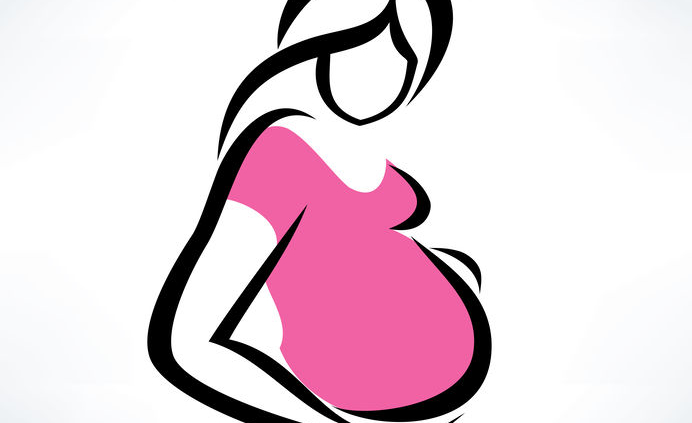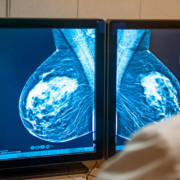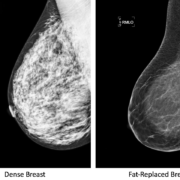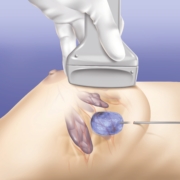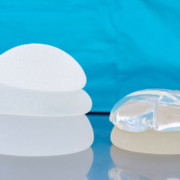19 December 2018
A study recently published in the Annals of Internal Medicine noted that breast cancer risk increases after childbirth, peaking at about 5 years after delivery. The increased risk was seen to persist for over 20 years.
The Annals study pooled the results from 15 prospective series. They found that in women with prior pregnancy, who had their most recent child 3 – 6.9 years before the study period, there were 41 excess breast cancer cases per 100,000 women at age 45, 170 excess cases per 100,000 at age 47.5, and 247 per 100,000 women at age 50. These numbers, while statistically significant, are relatively low. However, they may of course be considered important to an individual woman, deciding whether or not to have children.
The authors discussed that proliferation of breast cells during pregnancy and the post-partum microenvironment may play roles in facilitating and promoting abnormal cellular proliferation and mutation. There was a protective (not preventative) effect of breast feeding. In addition, as this study conflicts with prior research noting a protective effect of pregnancy in terms of breast cancer development, the authors suggest that this protective effect may relate more to breast cancer that develops at the “peak ages” (after 60) rather than in younger women.
As this study was a pooled analysis of other studies, information on breast feeding was not available for all patients, there were some patients where it was not possible to distinguish if breast cancer developed during pregnancy or during the immediate postpartum period, and there was limited data on breast cancer subtypes.
The impact of pregnancy on recurrence risk in patients who have been treated for breast cancer is an area of active research. A 2013 study demonstrated that patients who became pregnant after being treated for an estrogen-receptor positive breast cancer did not have increased risks of cancer recurrence. In addition, there is an ongoing cooperative group clinical trial, the POSITIVE study, evaluating outcomes of women who have been treated for breast cancer and then interrupt endocrine therapy treatment for pregnancy.
My take-home points from the Annals study are that there seems to be an association (which is very different from cause and effect) between pregnancy and development of breast cancer at a young age, but the absolute number of increased breast cancer cases are relatively small. I do not think this study should discourage women from starting a family if they want to have children, and the authors have not recommended enhanced breast cancer screening for women who have been pregnant. All women are at risk for breast cancer, and pregnancy may increase short term risk. Of course, any new breast finding or change should be evaluated, whether a woman has had children or not.
Additional Information:
HealthLine -Women Have Higher Risk of Breast Cancer After Childbirth
NY Times-Breast Cancer Risk May Rise After Childbirth, but is Still Low

